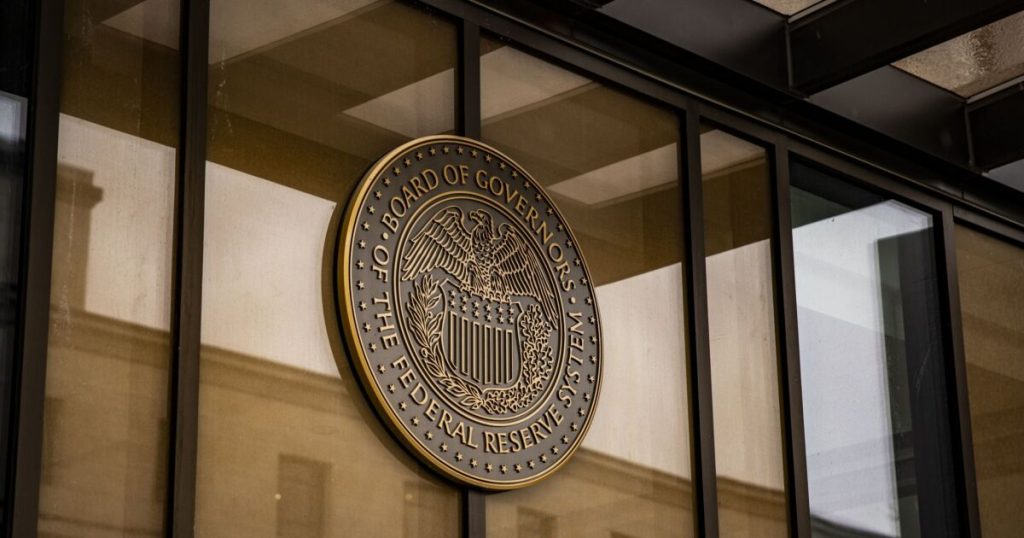Donald Trump’s
At a minimum, Trump will have the opportunity to appoint two governors to the board during the coming four years and determine the leadership of the body. He also suggested he would attempt to
And, in the waning weeks of the campaign, reports surfaced that Trump could
“It’s an outcome that is very unpredictable,” said Angelo Manolatos, an analyst with Wells Fargo. “What we do know is that there will be a lot of changes. However, the timing and whether or not there’s noise along the way is hard to know.”
The first scheduled vacancy on the Fed’s board of governors will come in early 2026, when Gov.
Kugler’s departure could create an opening for Trump to appoint his preferred candidate for Fed chair to the board. Current Fed Chair Jerome Powell’s
Powell’s board seat runs until 2028, meaning he could remain on after relinquishing the chairmanship, but that would be a departure from the tradition of outgoing chairs leaving the central bank swiftly. Even if he does serve until the end of his term, Fed policy would prohibit him from being reappointed, meaning Trump would have a second opening to fill during his term.
It is also possible — if not likely — that Trump will have the opportunity to appoint other governors. Between 2003 and 2023, the average tenure for non-chair Fed governors hovered around two years,
Fed nominees must go through an advice and consent process that entails approval by the Senate Banking Committee and then the full Senate. During his first term in office, this requirement stifled Trump’s attempts to advance two Fed board nominees: Carnegie Mellon University economics professor Marvin Goodfriend and economist Judy Shelton, who was narrowly approved by the committee but blocked by the full Senate. Another two — businessman and Tea Party activist Herman Cain and economic commentator Stephen Moore — withdrew in the face of Banking Committee skepticism.
For any new Fed appointments, the question will be how responsive they are to Trump’s policy preferences. During the final few months of his campaign, Trump repeatedly said he should be able to influence — though not set — the federal funds rate. Such a dynamic would be a paradigm shift from the tradition of the past several decades, during which presidents have abstained from trying to overtly direct the Fed’s actions, but is
Current Fed officials have endorsed the institution’s independence as a critical tool for promoting price stability and full employment. Powell often notes that political desires play no role in the Fed’s policy discussions. Gov. Christopher Waller, one of two remaining Trump appointees to the Fed board, said he would not be swayed by the directives from the White House.
“The financial markets do not want to see a politically driven Federal Reserve in terms of policy,” Waller said during a
Along with the Fed chair opening in 2026, Trump will also have the opportunity to name a vice chair for supervision that year. Created by the Dodd-Frank Act of 2010, the vice chair for supervision serves as the central bank’s lead regulatory official.
In late October, the Washington Post reported that Trump advisors have discussed stripping the vice chair position from Barr or undermining his policymaking imprimatur in some other way. From a legal perspective, it is unclear how this could be done.
While the Banking Act of 1935 notes that governors can only be removed for cause — meaning inefficiency, neglect of duty or malfeasance — the statute does not outline the conditions for removing a chair or vice chairmanship. Dodd-Frank does not weigh in on this either. Because of this lack of clarity, an attempt to strip Barr of his title could trigger a costly and time-consuming legal fight.
Karen Petrou, managing partner of Federal Financial Analytics, said whether or not the Trump administration seeks to remove Barr or his title will depend on who runs the incoming president’s transition and what they prioritize. Because of the legal uncertainties around removability, she expects such an undertaking would be, at most, a low priority.
“The external environment, whether it’s any kind of financial market stress, geopolitical risk, civil disobedience, or Trump trying to do all the things he cares about doing personally and surrounding himself with the uninhibited people willing to do it, that’s the agenda,” Petrou said. “Not Michael Barr.”
One potential Trump transition playbook, the so-called Project 2025 manifesto from the Heritage Foundation, does outline a litany of potential changes to the Fed, but makes no mention of the vice chair for supervision.
Paul Winfree, an economist and head of the Economic Policy Innovation Center think tank, argues for removal of the Fed’s full employment mandate, curtailing its last resort lending facilities, imposing congressional limits on its balance sheet and potentially doing away with the Fed’s monetary policy function altogether, replacing it with either a rules-based interest rate regime or a so-called “free-banking” system, in which banks alone control the supply of money. Winfree also advocates merging the supervisory functions of the Fed, Federal Deposit Insurance Corp. and National Credit Union Administration into a single entity.
Trump has disavowed Project 2025 and insisted that it would not dictate his transition priorities, but some of the policies in the publication mirror his platform and individuals involved with the project have ties to his inner circle.
Still, some analysts believe there is a key buffer protecting the Fed from Trump’s tinkering: the institution’s close ties to financial markets.
“Trump is very driven by financial performance, particularly the stock market,” said Derek Tang, co-founder of the Washington-based research firm Monetary Policy Analytics. “One way I would expect advisors to talk him off the ledge is by saying, ‘Look, if you do this, the stock market will be in free fall.’ That’s a big deterrent.”

